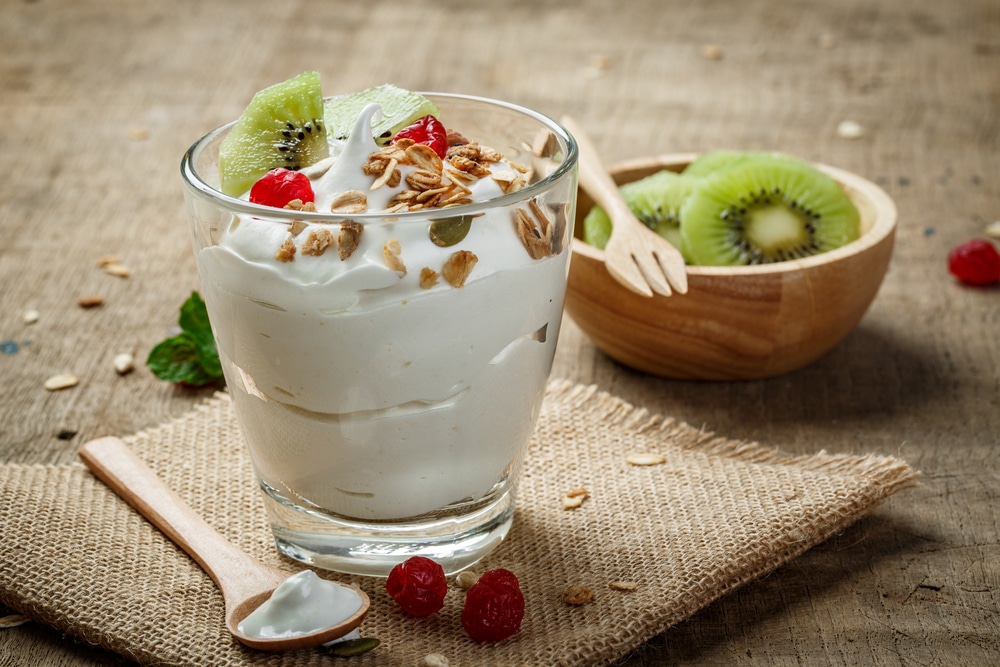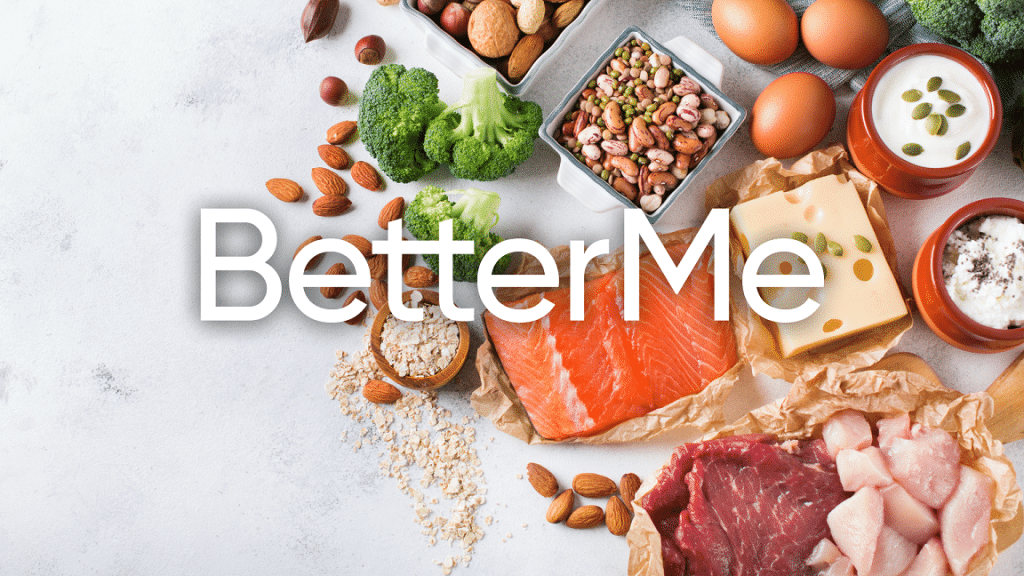Did you know that your digestive system hosts more than 100 trillion bacteria? This is about 10 times more than the total number of cells that form your body. These bacteria – which are also called gut flora – perform a wide range of critical bodily functions. They are so important to our health that an imbalance has many negative consequences. Luckily you can take steps to optimize your digestive system’s microbiome. We’ll show you how in this article.
How Do You Know If Your Gut Is Not Happy?
Before we get into the nitty-gritty’s of a gut reset, you need to know the signs of an imbalance.
Also called dysbiosis, the imbalance of gut bacteria can cause a wide range of digestive problems. This includes:
Digestive Issues
Dysbiosis may lead to an array of digestive issues, including (6):
- Stomach pain
- Bloating, gas, and cramps after eating
- Heartburn
- Diarrhea or constipation (or both!)
These symptoms are common enough that they’re often mistaken for typical IBS symptoms. If you suffer from these chronically, there’s most likely an underlying cause.
A healthy balance of gut bacteria is necessary for digestion. This means that if you’re experiencing digestive issues, consider working to reset your gut bacteria for better digestive health.
Fertility Issues
Healthy gut microbiome may also play an important role in fertility.
One review highlighted the relationship between IBS and infertility, concluding that oxidative stress is a plausible mediator of that connection, although data is lacking to confirm that hypothesis (4).
One clinical trial found that administering probiotic supplements to men with idiopathic infertility improved sperm quality. The authors suggested that reducing oxidative stress in the seminal fluid was a possible reason for the improvement (23).
Some scientists believe these microorganisms also regulate key hormones such as estrogen, progesterone, testosterone, and insulin (19). This may help explain why the microbiome has an impact on fertility. While these studies are interesting, they were small and more research needs to be done.
Read More: Fat Absorption: 5 Ways To Improve How Your Body Digests Fats
Autoimmune Diseases
Many autoimmune diseases involve an interplay between gut and immune system. It makes sense that the microbiome is closely linked to them as well.
Studies show that those with Crohn’s disease tend to have low microbial diversity, an altered microbiome composition, and an unstable microbial community (1). That said, research is still new, and it’s unclear if this imbalance is a cause of these diseases or a symptom of it.
However, some studies suggest autoimmune diseases such as multiple sclerosis (MS), psoriasis, rheumatoid arthritis (RA), and type 1 diabetes can be triggered or worsened by a poor microbiome (26).
Allergies & Asthma
On the other hand, good bacteria help protect us from allergies and asthma.
Healthy gut microbiome can reduce inflammation related to allergies & asthma which may explain the rise of these diseases in recent decades. One study found that people with allergies have fewer Lactobacillus rhamnosus GG (LGG) bacteria (16).
Giving this good bacteria to mice prevented them from developing allergies. It also reduced their immune system response, which is what causes allergic reactions in the first place (5).
LGG has also been found in animal models to reduce inflammation and improve mucus production (16).
Cancer
There’s some evidence that microbiome health may affect cancer risk. Studies show that good bacteria may help prevent colon cancer (21).
For example, Bifidobacteria and Lactobacillus have been linked to reduced risk of colorectal cancer. This may be because they produce acetate, hydrogen peroxide, or other molecules that kill off tumor cells (21). However, the mechanisms and links are not well enough understood at this time to recommend a specific probiotic strain to help prevent or treat a specific disease. In fact, requirements and effects may be very individualized. What we can say is that a healthy gut microbiome contributes to a healthy gut.
As for other cancers, research is still limited.
Low Energy And Chronic Fatigue
Digestive problems can cause low energy and chronic fatigue. That’s because the gut microbiome is so involved in our metabolic function. It helps break down food nutrients, absorb them into the body, and release waste. When it’s unbalanced or unhealthy, you may not be able to absorb nutrients as well. This can leave you feeling fatigued and tired, even when you’re getting enough rest (11).
Autoimmune diseases such as Hashimoto’s disease may also cause chronic fatigue or low energy. In fact, research shows that people with chronic fatigue sometimes have increased bacterial translocation (when bacteria passes from the intestines to the bloodstream) (24). This is a sign of leaky gut syndrome, which we’ll talk about below.
Anxiety And Depression
About 90% of serotonin – our “feel good hormone” – is created in the gut. That’s why imbalances in our microbiome can cause anxiety and depression.
It’s not exactly clear how this works. However, research suggests an unbalanced microbiome may interfere with serotonin production or the way the body uses it (14).
This is because serotonin needs “help” from other chemicals in order to function normally. When you have less gut bacteria, you may not produce enough of them or your body may not produce them in the right amount or at the right time. Either way, your brain chemistry will be thrown off, which can make you more anxious or depressed (14).
BetterMe app is a foolproof way to go from zero to a weight loss hero in a safe and sustainable way! What are you waiting for? Start transforming your body now!
How Do You Reset Good Gut Bacteria?
Restoring the gut microbiome takes time. But you can start with these 10 tips:
Eat More Fiber For Gut Reset
Fiber is an essential part of a balanced diet and is one of the best foods you can eat for a healthy gut. Adding fiber to your daily eating plan will help reset your gut microbiome by feeding beneficial bacteria and supporting optimal digestion.
There are two types of dietary fiber: Soluble and insoluble. Both play an important role in supporting overall health and wellness, but they do so in different ways.
Soluble fiber is the type of dietary fiber that dissolves in water, forming a gel-like substance. The bacteria in your gut turn soluble fiber into short-chain fatty acids, namely acetate, propionate and butyrate. These are the preferred foods of the good bacteria that hang out in your colon (25).
Soluble fiber is found in foods that are generally high in water content, such as fruits and vegetables. It can also be found in whole grains, oats, legumes, seeds and nuts.
Insoluble fiber is not water-soluble. It passes through your intestines relatively intact, promoting regular bowel movements and supporting healthy gut bacteria (n). Foods that are high in insoluble fiber have a high-fiber content overall, including whole grains, vegetables and fruit.
You may be tempted to go “high” on the fiber scale right away by dramatically increasing your intake of foods such as leafy greens or cruciferous veggies (think cabbage, broccoli and cauliflower). You certainly can, but you should take it slow.
Foods that are high in fiber have the potential to cause bloating and gas for those who aren’t used to eating them (27). If you experience these symptoms, consider adding a small amount of fiber daily until your digestive system adapts.
If you want to reset your gut microbiome with more fiber, try adding just one new fiber-rich food per week to your current diet.
Restore Good Bacteria With Prebiotics And Probiotics
Prebiotics are types of soluble fiber that act as “fertilizer” for the good bacteria in the gut. They help these beneficial bugs grow and multiply, ultimately helping you avoid digestive problems and promoting a healthy gut (25).
Probiotics, on the other hand, are living strains of good bacteria that are found in certain foods or supplements.
Prebiotics are found in foods rich in soluble fiber, including fruits, vegetables, whole grains, legumes, and some dairy products. You can also find prebiotic supplements at the local health food store or online.
If you want to reset your microbiome with more prebiotics, increase the number of fruits, vegetables, and whole grains you eat daily. You can also supplement your diet with prebiotic supplements.
Research shows that there’s a symbiotic relationship between prebiotics and probiotics (20). The two actually work together to help reset the gut microbiome, creating an environment where good bacteria thrive and flourish over bad bacteria. Combining these elements creates the best opportunity for your body to heal.
Eating prebiotics and probiotics together can be as simple as enjoying a cup of yogurt that contains live active cultures, along with fruit for added soluble fiber. While you’re at it, try adding in some berries rich in antioxidants to protect the good bacteria from the inside out.
Read More: Digestive Superfoods That Support Gastrointestinal Health
Eat Fermented Foods
Fermented foods are high in live active cultures that “feed” bacteria in your gut, particularly the types of beneficial bacteria that create short-chain fatty acids. This is important because these acids are the optimum fuel for the cells lining your colon.
The process of fermentation breaks down foods naturally high in prebiotics, creating a food source for beneficial bacteria. These include fermented vegetables, miso, tempeh and kimchi. It also includes raw, unpasteurized sauerkraut that contains natural probiotics.
In addition to their prebiotic and probiotic content, fermented foods also contain additional nutrients that promote digestive balance and a healthy gut microbiome. These include calcium, magnesium and B vitamins.
Another way to reset your gut microbiome may be through fermented dairy products like kefir (a drinkable yogurt), yogurt and cheese.
Research shows that these foods contain additional probiotics – considered even more beneficial to gut health – and prebiotics, which help the good bacteria grow while crowding out the bad bacteria. Given their ability to boost lactobacilli populations, kefir and yogurt are linked to better digestive health while supporting a healthy gut microbiome (10).
Try A Mediterranean Diet
The Mediterranean diet is high in fiber, vegetables, fruits and healthy fats. It’s also rich in protein from seafood, poultry and lean meats. What’s more, it contains fermented dairy products like yogurt alongside prebiotic foods such as garlic, onions, almonds and beans.
Previous research suggests that the gut microbiome of those who follow a Mediterranean diet is significantly different from those who don’t follow a Mediterranean style of eating. The differences include higher levels of healthy bacteria and less inflammation (17).
The easiest way to reset your gut microbiome through a Mediterranean-style diet is by eliminating processed foods. Replace packaged and prepackaged foods with whole, fresh foods that are high in fiber. It’s also important to eat a range of vegetables each day, at least two to three cups worth. Finally, choose whole grains instead of refined products whenever possible.
Eat More Anti Inflammatory Foods
Acute inflammation in response to an illness or injury is a necessary and helpful part of the immune response. Chronic low-grade inflammation is a different story. Since chronic inflammation has been linked to digestive problems and other health conditions, it’s important to minimize it within the body as much as possible (13).
To reset your gut microbiome and potentially decrease those inflammatory markers, try:
- Adding more fresh produce, especially those rich in anti-inflammatory nutrients like vitamins C and E and beta carotene
- Replacing refined grain products with whole grains
- Eating more foods rich in omega 3 fatty acids, such as salmon and other seafood
Reduce Stress
In addition to the health implications from eating a high-fat diet, stress can also have an adverse effect on gut bacteria (22). The reduction of beneficial bacteria levels in turn can create an imbalance in the gut microbiome.
You may want to try adding in activities that reduce stress like yoga, spending time outside or engaging in a relaxing activity like listening to music or taking a hot bath. It’s also important to consider making time for yourself each day and getting enough sleep. These are all effective ways of resetting your gut microbiome.
Intense sweat sessions, working weight loss tips, lip-smacking recipes come in one package with the BetterMe app. And all of it is at your fingertips, start transforming your life now!
Minimize Using Antibiotics If You Can
Antibiotics are taken to kill bacteria that are causing infection and illness, but they can also have a negative impact on the gut microbiome by killing off beneficial bacteria (2).
Sometimes they are necessary, and you should always follow your doctor’s advice. But avoiding taking antibiotics unnecessarily is important.
If you can’t avoid taking antibiotics, talk to your doctor about taking them along with probiotic supplements. After your antibiotic course is finished, make sure to eat plenty of prebiotic foods that can help restore your good bacteria.
Avoid Artificial Sweeteners
In a bid to lose weight and improve their health, many people are turning from sugar to artificial sweeteners. Unfortunately, research suggests that artificial sweeteners can also have a negative effect on the gut microbiome (8).
To reset your gut microbiome and improve your overall health, stay away from artificial sweeteners. You’d be better served by limiting sugar instead.
It’s also a good idea to limit your intake of high fructose corn syrup, which is often found in beverages and other products.
Ditch The Western Diet
The Western diet is high in animal protein, sugar, and fat, and low in fiber. This type of diet has been linked to an increased risk for developing health conditions like obesity, certain cancers and Alzheimer’s disease (15).
Reducing your intake of meat products, especially processed ones, is one way to reduce inflammation in the body and help reset the gut microbiome. Instead of eating ground beef or sausage or high-fat pork products, consider cooking with leaner poultry like chicken or turkey.
Additionally, replace your refined grain products with whole grains and add more vegetables to your diet. You might also want to experiment with different cooking methods like boiling or steaming instead of frying for a healthier meal plan overall.
Quit Smoking
A study found that after quitting smoking, participants had more microbial diversity in their gut than when they were smoking (7).
Smoking is harmful to the body in a number of ways, and it may be affecting your gut microbiome as well. Even if you can’t quit smoking altogether, consider cutting back to limit the potential damage smoking has on your gut microbiome.
Hit The Gym
Studies suggest that exercise is good for your gut microbiome and overall health (9).
When you work out, you tend to lower stress hormones, which are known to negatively impact the gut microbiome. If you haven’t been exercising regularly, then start slowly and build up. You’ll be able to reap the benefits of exercise on your gut microbiome before you know it.
Practice Sleep Hygiene
The quality and quantity of your sleep is also linked to your gut microbiome. Unfortunately, too many people are sacrificing their sleep in order to get more things done.
With today’s busy lifestyle it can be hard to hit the hay at a decent hour, however this is having a negative impact on your gut microbiome. Studies suggest that getting enough sleep improves digestive health by resetting your gut microbiome (12).
Some sleep hygiene practices that may help include:
- Setting and sticking to a sleep schedule
- Winding down before bed with relaxing activities like reading or taking a bath
- Keeping sleep disruptions to a minimum by staying off electronics before bedtime and investing in blackout curtains
- Creating a conducive sleep environment including temperature and comfortable beddings
- Limiting alcohol and caffeine
The Bottom Line
Your gut microbiome is responsible for regulating many processes in your body. Fortunately, there are plenty of steps you can take today to reset your gut microbiome and live a healthier life. Try any of these 13 things to reset gut bacteria and notice the difference.
Get your personalized
meal plan!
DISCLAIMER:
This article is intended for general informational purposes only and does not serve to address individual circumstances. It is not a substitute for professional advice or help and should not be relied on for making any kind of decision-making. Any action taken as a direct or indirect result of the information in this article is entirely at your own risk and is your sole responsibility.
BetterMe, its content staff, and its medical advisors accept no responsibility for inaccuracies, errors, misstatements, inconsistencies, or omissions and specifically disclaim any liability, loss or risk, personal, professional or otherwise, which may be incurred as a consequence, directly or indirectly, of the use and/or application of any content.
You should always seek the advice of your physician or other qualified health provider with any questions you may have regarding a medical condition or your specific situation. Never disregard professional medical advice or delay seeking it because of BetterMe content. If you suspect or think you may have a medical emergency, call your doctor.
SOURCES:
- A microbial signature for Crohn’s disease (n.d., bmj.com)
- Antibiotic side effects (2001, pubmed.gov)
- Antimicrobial effects in oral microenvironments by a novel herbal toothpaste (2020, sciencedirect.com)
- A Review of the Complex Relationship between Irritable Bowel Syndrome and Infertility (2020, nih.gov)
- Commensal bacteria protect against food allergen sensitization (2014, pnas.org)
- Dysbiosis of the gut microbiota in disease (2015, nih.gov)
- Effects of Smoking Cessation on the Intestinal Microbiota (2020, nih.gov)
- Effects of Sweeteners on the Gut Microbiota: A Review of Experimental Studies and Clinical Trials (2019, nih.gov)
- Exercise Modifies the Gut Microbiota with Positive Health Effects (2017, nih.gov)
- Fermented-food diet increases microbiome diversity, decreases inflammatory proteins, study finds (2021, stanford.edu)
- Gut inflammation in chronic fatigue syndrome (2010, nih.gov)
- Gut microbiome diversity is associated with sleep physiology in humans (2019, nih.gov)
- Gut Microbiota and Inflammation (2011, nih.gov)
- Gut microbiota’s effect on mental health: The gut-brain axis (2017, nih.gov)
- How Western Diet and Lifestyle Drive The Pandemic of Obesity And Civilization Diseases (2019, nih.gov)
- Impact of Probiotic Bacteria on Respiratory Allergy Disorders (2021, nih.gov)
- Influence of Mediterranean Diet on Human Gut Microbiota (2020, nih.gov)
- Microbiota and Human Reproduction: The Case of Female Infertility (2020, nih.gov)
- Minireview: Gut Microbiota: The Neglected Endocrine Organ (2014, nih.gov)
- Probiotics, prebiotics and synbiotics (2015, nih.gov)
- Probiotics and Colon Cancer (2019, nih.gov)
- Stress, depression, diet and the gut microbiota: human-bacteria interactions at the core of psychoneuroimmunology and nutrition (2020, nih.gov)
- Synbiotic (FamiLact) administration in idiopathic male infertility enhances sperm quality, DNA integrity, and chromatin status: A triple-blinded randomized clinical trial (2021, nih.gov)
- The Gut Microbiome in Myalgic Encephalomyelitis (ME)/Chronic Fatigue Syndrome (CFS) (2022, frontiersin.org)
- The Health Benefits of Dietary Fibre (2020, nih.gov)
- The microbiome in autoimmune diseases (2019, nih.gov)
- What to Do About Gas Caused by High-Fiber Diets (2020, webmd.com)
















